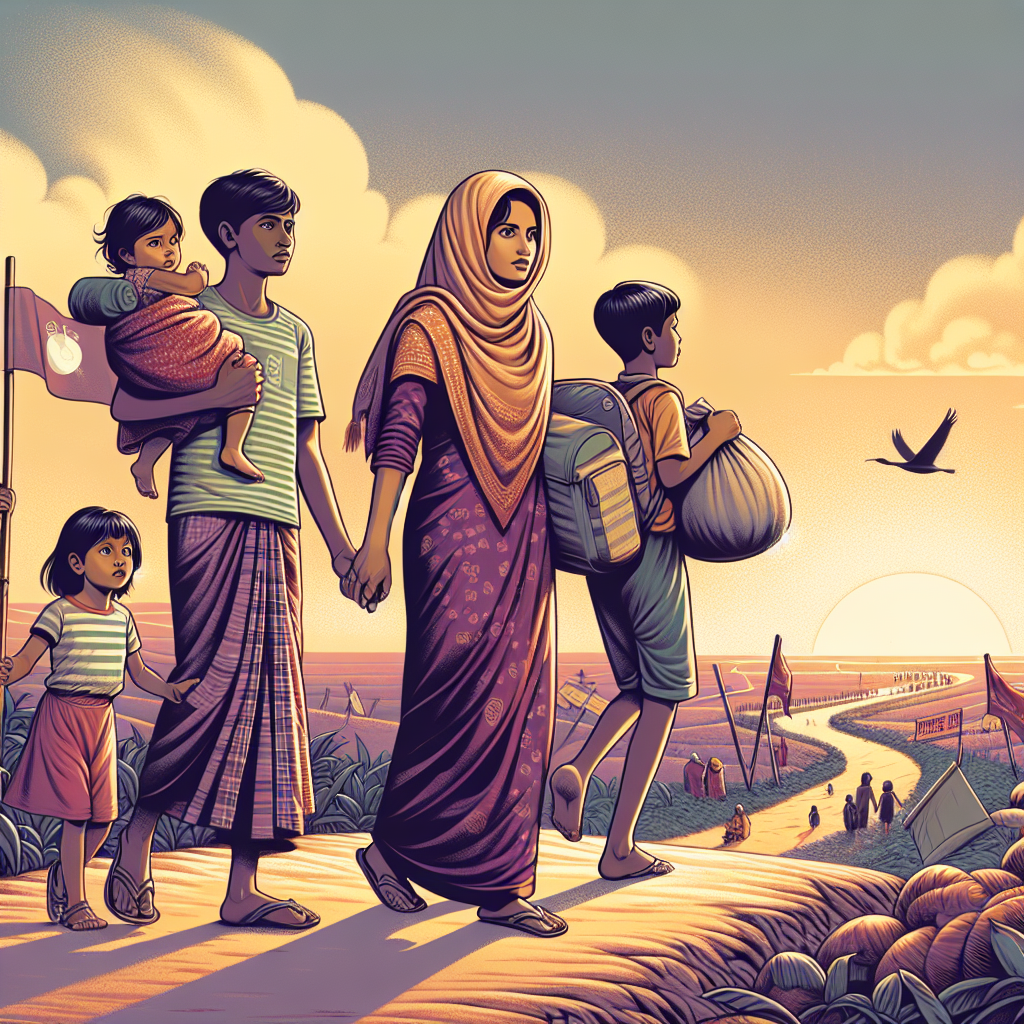Rohingya Refugee Crisis Intensifies Amid Escalating Violence in Myanmar
Approximately 8,000 Rohingya Muslims have recently fled Myanmar's Rakhine state due to escalating conflict between the ruling junta and the Arakan Army. Already overburdened, Bangladesh is struggling to accommodate more refugees. The Bangladeshi government plans serious discussions to address the crisis, emphasizing the need for global intervention.

Approximately 8,000 Rohingya Muslims have fled Myanmar's Rakhine state to Bangladesh in recent months, driven by intensifying violence between Myanmar's ruling junta and the Arakan Army, according to Bangladeshi officials.
The violence has escalated significantly, with the Arakan Army, a powerful ethnic militia from the Buddhist majority, clashing with the junta. "We have information that around 8,000 Rohingya crossed into Bangladesh recently, mostly over the last two months," stated Mohammad Shamsud Douza, a senior official overseeing refugees in Bangladesh.
Douza noted that Bangladesh is already overburdened and unable to accommodate more Rohingya refugees. The government plans serious discussions at the cabinet level to address the crisis, as confirmed by Bangladesh's de-facto foreign minister, Mohammad Touhid Hossain. Hossain expressed sympathy for the Rohingya but highlighted the country's limited capacity for further humanitarian shelter.
Hossain also noted the difficulty in fully securing the border to prevent further infiltration. On August 25, tens of thousands of Rohingya refugees in Bangladesh held rallies marking the seventh anniversary of the 2017 military crackdown, demanding an end to violence and safe return to Myanmar.
Currently, over one million Rohingya live in overcrowded camps in southern Bangladesh with grim hopes of returning to Myanmar, where they face denial of citizenship and other basic rights. The recent increase in violence is the worst they have faced since the genocidal 2017 military-led campaign. Last month, Hossain urged India and other countries to take greater action and called on the international community to pressure the Arakan Army to cease attacks on the Rohingya.
(With inputs from agencies.)
ALSO READ
UAE Pledges $7 Million to UNICEF for Sudan Humanitarian Crisis
Gujarat Faces Flood Crisis: Jamnagar Leads Rescue Operations Amid Heavy Rainfall
Gas Supply Crisis in Balochistan Sparks Widespread Disruptions and Price Hikes
BJP Faces Resignation Crisis Over Ticket Distribution in J&K
Ashok Gehlot Criticizes State Government Over Rising Sexual Violence










